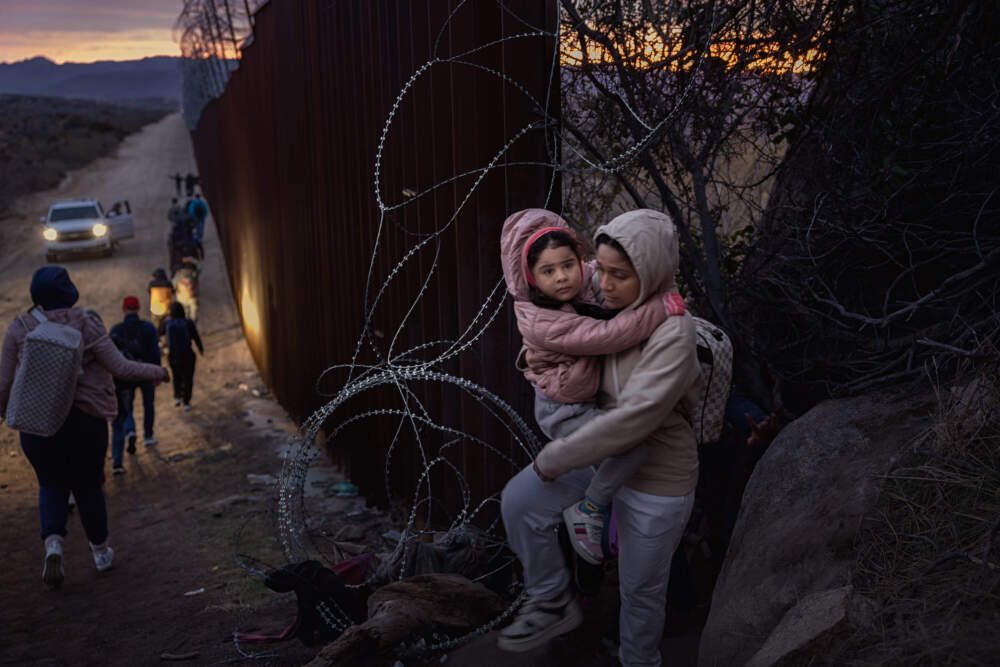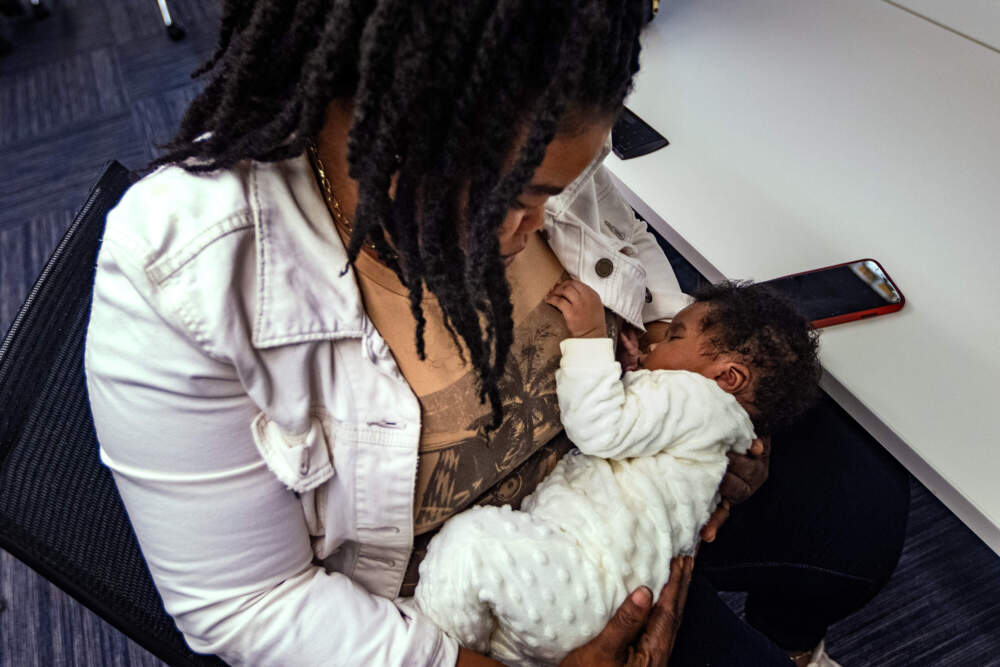Advertisement
Commentary
Helping refugees settle in the US, one family at a time

What to do about so many people seeking refuge in the U.S. remains a divisive, seemingly insurmountable, issue in Washington and around the country. Some Democratic mayors have asked President Biden to stop large numbers of asylum seekers arriving with “little to no coordination, support or resources.” Some Republicans are using the number of migrants at the southern border as a political cudgel. The accusations and debate are getting even more rancorous as the 2024 election approaches.
But there is a pathway to bring in people who may be fleeing war, violence and persecution that both sides can support: private sponsorship. This approach, which recently marked its first anniversary, could hold a key to some of our country’s immigration challenges.
In January 2023, Secretary of State Antony Blinken announced the Welcome Corps and its first phase, which allows Americans to form groups to sponsor refugees abroad who are already approved for resettlement. Now the Biden administration has expanded the program with an application process that lets groups themselves identify a specific refugee or refugee family abroad and apply to sponsor their resettlement provided they meet the required criteria and pass the strict interviewing, security exams and vetting of the U.S. Refugee Admissions Program. The sponsors must greet the refugees at the airport, find housing, enroll kids in school, raise $2,425 per person sponsored, and help them navigate their new communities.
Sponsoring people in perilous situations and helping them find safety in the U.S. has become an important dimension of American life. Led by military veterans and others committed to our Afghan allies, innovative sponsorship efforts supported tens of thousands of Afghan evacuees integrating into communities across the U.S. after the fall of Kabul in August 2021.
When Russia invaded Ukraine in February 2022, the Biden administration created an opportunity to sponsor Ukrainians called Uniting for Ukraine, which puts the housing and financial responsibilities on the shoulders of the sponsors. More than 175,000 Ukrainian refugees have arrived in the U.S. through this program.
Galvanized by these successful mobilizations of Americans and seeking to reduce arrivals at the southern border, the Biden administration then created sponsorship pathways for Cubans, Haitians, Nicaraguans and Venezuelans (CHNV). Some 30,000 asylum seekers from these countries are allowed into the United States monthly and more than 300,000 have arrived since this program started in January 2023. By June 2023, unauthorized southern border crossings had decreased by 89% according to the Department of Homeland Security, although now there’s a significant backlog for these programs.
The U.S. administration has also opened up Safe Mobility Offices — places in several Latin American countries where those fleeing poverty and violence can receive information about legal relocation pathways, including sponsorship opportunities to the U.S.
The benefits of such programs are notable — and popular. People who have sponsors don’t have to risk their lives trying to get to safety. About 2 million Americans across religious and political divides, in conservative and liberal communities, from over 10,000 zip codes in all 50 states have taken steps to sponsor people abroad who are seeking safety to come to the U.S. These numbers represent a dramatic expansion of American capacity to welcome newcomers and demonstrate that sponsorship is a unifying force at a time when America’s sense of common purpose is badly eroded.

Jacob Mabil, one of the Sudanese “Lost Boys” — a group of unaccompanied children who survived countless dangers before resettling in the United States through the U.S. Refugee Admissions Program and made famous by two "60 Minutes" episodes — illustrates the benefits this new Welcome Corps program could bring. I met Mabil in 2001 when he was a refugee living in Kenya’s Kakuma refugee camp, and told him (and many others) to call my parents, who lived outside of Boston, if he needed some extra help once he arrived. He did so, and soon became a regular at the Thanksgiving dinners and was a guest at my wedding.
Mabil has built a life here, obtaining a bachelor of arts degree from the University of New Hampshire, and went on to work for Fidelity as a financial analyst, and moved to Texas where he built a house for his family.
But he faced a heartbreaking decision. His mother had miraculously survived the violence in Sudan and fled to Kakuma camp years after Jacob came to the U.S. She had in tow her three orphaned granddaughters (Jacob’s nieces). Mabil sent for his mom through the U.S. refugee program’s family reunion opportunity, but the three granddaughters were not eligible to join her. Leaving them in Kakuma would be dangerous, but this was his mom’s one chance to come to the U.S.
She left Kakuma and now lives with Mabil, who has been supporting his nieces for the past decade while desperately searching for a way to bring them to America. He hopes that the Welcome Corps will offer that opportunity.
Like Mabil, refugees aid their new communities. One government study found that they contribute $63 billion more to the economy than they utilize in services over a decade. Another study found that refugees make excellent employees and, on average, stay longer in their jobs than other workers.
People across the country can form sponsor groups or donate to a fund that is helping break down financial barriers to sponsorship.
War and violence forced more than 114 million people from their homes worldwide by the end of 2023 and separated families. Building sponsorship opportunities for people like the one highlighted above enables communities to properly welcome refugees and establishes mechanisms to help address migration crises. Sponsorship expands family reunion opportunities too.
Welcoming a newcomer and furthering freedom and justice for people whose lives have been shattered is not only beneficial for our towns and cities, but also a personally rewarding endeavor. One of the people who helped Mabil when he first arrived said it’s like “acting as a doctor for your own soul.” This expanded private sponsorship program has the potential to help heal a major rift in Washington and across the county.
Sasha Chanoff will talk about refugees and sponsorship opportunities as the keynote speaker for the Arlington Human Rights Day of Learning on Feb. 10 at 11am at Arlington High School.
